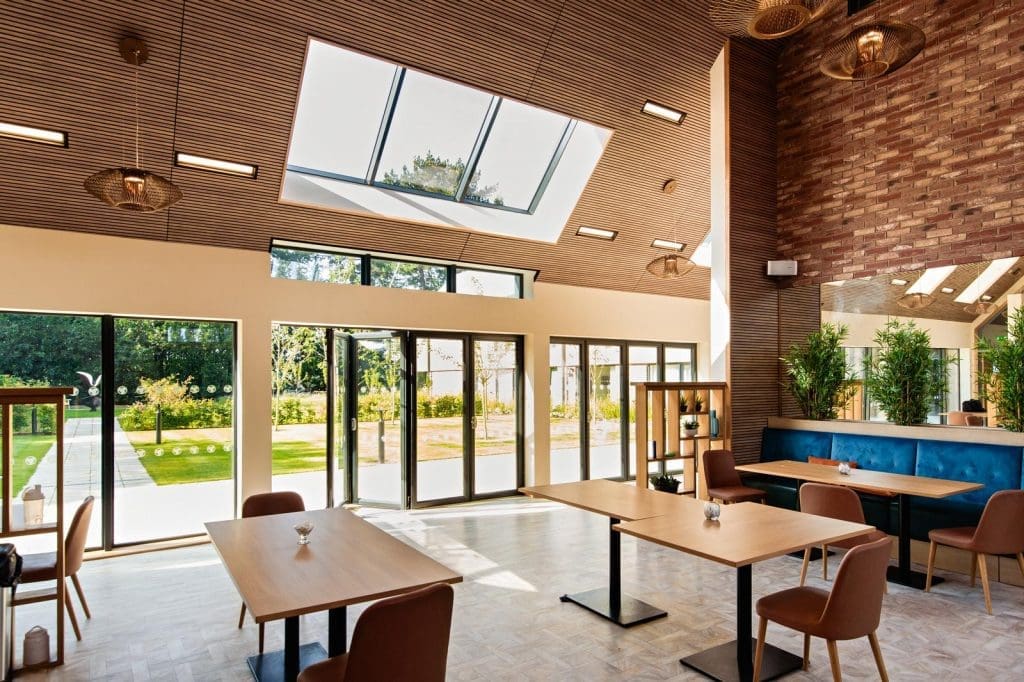“We all need to get away from time to time from problems we have. Whether that’s addiction problems, work-life balance issues or excessive pressure on you. This is the perfect facility for that purpose.”
Mental Health Rehab
Mental health refers to our emotional, psychological, and social well-being. It affects how we think, feel, and act in everyday life. At Delamere, our approach to mental health rehab is about getting to the source of the problem and finding the best way for you to overcome your challenges.


Delamere mental health rehab
Mental health problems can start for all sorts of reasons such as trauma or abuse, substance use, social reasons, or financial pressures, or someone might be genetically disposed to having mental health issues. These external pressures can build up and manifest in problems such as anxiety disorders, personality disorders, psychotic disorders, and eating disorders.
At Delamere, our team of highly trained therapists, mentors, nurses, doctors, and lived experience practitioners use a range of evidence-based therapies to encourage you to open up about your problems and get to the root of what’s causing your poor mental health.
Unlike a traditional mental health rehab centre, we are person-centric – looking at all aspects of a person’s life to support the healing process.
Guests participating in our mental health rehab programme can expect traditional psychotherapies such as 1-1 counselling sessions, group therapies, trauma therapy, and Cognitive Behavioural Therapy (CBT) as well as somatic healing experiences, such as meditation, grounding techniques, and breathwork, all of which play a crucial role in helping them to heal and overcome their mental health problems.
Workplace burnout, addiction, & stress at work

“I didn’t have trouble with alcohol or drugs but the therapist, mentors, and staff helped me greatly in my depressed state. I can honestly say I exited a better, happier person.” – Michael Theodorou, Former Delamere guest
View Our Treatment Model View our Environment Call now: 0330 111 2015
Why go to rehab for mental health?
Mental illness often goes undiagnosed. Everyone has ups and downs, so it isn’t always easy to spot the difference between a low mood and a mental health disorder. Whilst there are many things you can do in general to improve your mental wellbeing, such as being physically active, sleeping well, drinking less alcohol, or eating a nutritious diet, sometimes a more intensive form of treatment is necessary to reframe negative thoughts and learned behaviours. That’s where mental health rehab becomes extremely valuable for those who need to press pause, reset, and recalibrate. Delamere is primarily an addiction treatment and behavioural health clinic, rather than a psychiatric hospital. We regularly support guests for whom addiction isn’t a primary presenting problem, yet mental health or work burnout is.
Our programme and environment can be an especially good fit for those seeking recovery from mental health issues who are looking for a more comfortable environment with a more holistic approach. Delamere’s team includes 24/7 mental health professionals and much of the programme here is focused around mental health, trauma, and how we respond to life in a healthy way.
It’s important to recognise the signs in yourself, or someone you care about, to get a proper diagnosis and find the right, professional mental health treatment. Here are some common indications of mental health problems:
Feeling anxious or depressed
It’s normal to have days where you feel anxious or worried about something but, if it’s happening more often than not, you may be suffering from a mental health disorder. Symptoms such as heart palpitations, headaches, restlessness, lack of appetite, and insomnia can indicate you aren’t coping with anxiety and need help. Symptoms of depression involve a low mood or loss of pleasure or interest in activities, leaving people feeling despondent and disconnected from life. At Delamere, we offer both anxiety treatment and rehab treatment for depression to help guests improve their quality of life and regain control from these overwhelming mental illnesses.
Withdrawing from social situations
When you’re struggling with your mental health it can be difficult to face people. You may find that you’ve lost interest in things you used to love doing, or just don’t want to be in social situations anymore. When this starts becoming a regular occurrence it’s time to seek mental health treatment. Having a social network, and other people you can lean on is an important part of your recovery. At Delamere, we encourage our guests to talk openly with others in group therapy and build relationships that can support them in their life beyond treatment.
Drug and alcohol abuse
Turning to substance abuse is common for someone suffering from mental health problems. You may notice someone is drinking more alcohol than usual or taking drugs to get through the day. What starts as a means of ‘taking the edge off’ can soon become a physical and psychological need. This can very easily turn into alcohol addiction or drug addiction without effective mental health treatment.
Mood swings and psychological problems
If you notice that someone is becoming quick to anger, it could be a sign of a mental health illness. Everyone has off days, but extreme mood swings can indicate bipolar disorder or other mental illnesses, such as personality disorders.
If you recognise any of the signs and symptoms of mental health problems in yourself or others, it’s important that you get professional help. Don’t hesitate to call us on 0330 111 2015 for free, confidential advice.


The Delamere approach to mental health rehab
An inpatient stay at Delamere is a deliberately intensive 4-phase mental health rehab programme, one which we have crafted over time and has helped many participants recover. Our emphasis is on holistic therapy, treating the whole person rather than just the symptoms they present with.
Our approach at Delamere comprises 4 core phases: Stop, Start, Grow, & Bloom. Everything we offer at Delamere aims at effective and lasting outcomes in addiction treatment:
How to encourage a loved one to go to a mental health rehab centre
Encouraging someone you care for to get the help they need is a huge feat and we want to support you. If you are looking for help for a friend, working with someone or living alongside someone who is displaying signs of mental health issues, we’re here to help. At Delamere, we provide family support services and intervention services to help your loved one confront addiction and denial. For more information on any of these services, call us today on 0330 111 2015.
Frequently asked questions about mental health rehab
Mental health conditions often go hand-in-hand with addiction. As an addiction treatment and behavioural health clinic with clinical resources and expertise that exceeds what is often found at more traditional rehab centres, here at Delamere we are able to manage dual-diagnosis, treating a guest’s mental health condition alongside an addiction.
If you are in need of dual diagnosis treatment or think you know someone who is, contact our team today and learn more about the options available to you here at Delamere.
At Delamere, we offer treatment for all mental health conditions. From anxiety treatment to our PTSD rehab programme, our multidisciplinary team collectively has over 100 years of experience in treating all manner of mental health disorders and addictions.
Before beginning your mental health rehab programme, our experienced team of medical professionals and psychotherapists will conduct a full medical and mental health assessment. Once the assessment is complete you may then be prescribed a tailored medication programme to help support you in overcoming your mental health condition. All medications will be issued at regular intervals by our 24-hour on-site nursing team who will continue to check on your physical and mental wellbeing throughout your entire stay.
Let us help you today
Start your recovery journey by contacting us today.
Confidential. Straightforward. Friendly.
Help and Support for Mental Health
-
Behavioural Addiction Treatment
Learn more about our approach to behavioural addiction treatment. Visit Behavioural Addiction Treatment
Discover more advice on the Delamere blog
-
Is the UK experiencing a gambling addiction crisis?
Is the UK experiencing a gambling addiction crisis? New research by the University of shows young gamblers 4x likelier to attempt suicide.
-
The rise of shopping addiction in the UK
Since the pandemic shopping addiction has doubled; 10% of the population has a shopping addiction. Delamere looks into the signs & how to manage it.
-
Setting Boundaries with your Smartphone
Students will spend 25 years of their lives on their smartphones if current screen time habits continue. Delamere gives tip on how to set boundaries with your smartphone.
-
How digital detoxes can help to reconnect
People are struggling with social media, phone, and internet addiction. Discover how digital detoxes can help to unplug and reconnect.





















